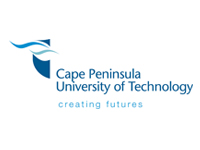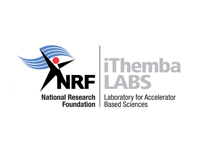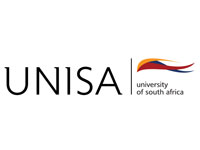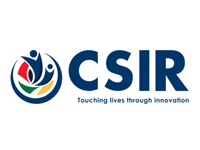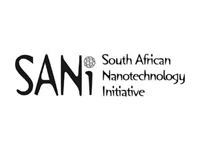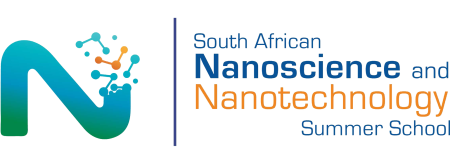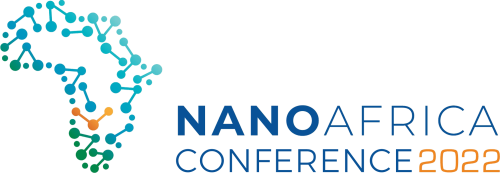Guidelines for presenters
Oral presentations
You have 10 mins for your presentation and 5 mins for questions.
Please report to your venue during break times to load your presentation. If your presentation is not loaded before the session starts, you will not be allowed to present. If possible, try to upload your presentation a the day before. NO presentations will be uploaded during the sessions.
POSTERS
Your poster must be size A0 – Portrait.
Posters may be displayed from 3pm on the 25th October. Please be at your poster during the poster session. If you are not at your poster, your poster will be excluded from adjudication process.
Please remove your poster after the conference.
Nanotechnology for Sustainability:
Towards attaining the World’s Sustainable Development Goals.
ABSTRACT SUBMISSIONS ARE NOW CLOSED.
DEADLINES NANO AFRICA ABSTRACTS
NanoAfrica 2022, in partnership with the South African Nanoscience and Nanotechnology Summer School will be hosting two conferences. The 6th South African Nanoscience and Nanotechnology Summer School and the 8th International Conference on Nanoscience and Nanotechnology in Africa (NanoAfrica 2022).
6th South African Nanoscience and Nanotechnology Summer School will be held on the dates 23 – 25 October 2022 at The Lord Charles Hotel, Cape Town.
8th International Conference on Nanoscience and Nanotechnology in Africa (NanoAfrica 2022) will be a face-to-face conference, on the dates 26 – 28 October 2022.
The conference will take place at The Lord Charles Hotel, Cape Town.
FIRST CALL FOR ABSTRACTS
Nanotechnology for Sustainability: Towards attaining the World’s Sustainable Development Goals.
Conference Aim and Scope:
The conference provides an opportunity for scientists and engineers to share their research. Main focus of the conference is to showcase how nanoscience and nanotechnology are assisting the wold in attaining sustainable developmental goals. Apart from cutting edge research, the conference will also provide a platform for emerging researchers to present their work. The scientific program will feature plenary presentations, invited talks, panel discussions, oral and poster presentations and an insightful exhibition.
All scientists and engineers are hereby invited to submit an abstract to reflect on the above-mentioned theme, aim & scope, in the best sub-theme below:
GUIDELINES
- Title of the presentation must be no longer than 10 words.
- Abstract must be between 250 and 500 words.
- Abstract must be language edited before it is submitted.
- Abstract should contain in-text references (author date), but a reference list is not required.
- Abstract should be understandable to a broad spectrum of readers.
HOW TO SUBMIT AN ABSTRACT
Register as a user by clicking this link
- Log in / continue using the access details created during the abstract registration process to submit an abstract.
- Click on “Your Submissions”.
- Complete the necessary fields.
- Click on Proceed and Complete submission.
Once completed, a screen will appear showing the new submission created with the details. You will also receive an e-mail confirming your submission.
SUB THEMES
The development of synthesis protocols that produce nanomaterials with a wide range of sizes, shapes and chemical compositions is an important aspect of nanoscience and technology. Nanomaterial characterization involves a branch of nanometrology that focuses on the description, or measurement, of the intrinsic physical and chemical properties.
Accessibility to sufficiently clean and fresh water for human consumption, especially in developing countries, remains one of the grand challenges of the modern world. Over the past two decades, nanotechnology has rapidly evolved into a key, cost-effective technology for water remediation and treatment.
With the advent of the 4th Industrial Revolution (4IR), computational design, modeling, and simulation play an increasingly important role in the development of functional nanosystems. In particular, computational methods can describe, with high accuracy, broad ranges of properties or components that have not yet been realized experimentally; hence can in many instances be used to guide experimentalists in groundbreaking directions.
Nanotechnology has often been labeled a general-purpose technology as it has a propensity to branch into complementary, technological sectors. Nanomaterials are increasingly becoming integral to many modern-day products, as either part of the product or the manufacturing process, yet not always recognizable to the general public.
Sensing and diagnostics technologies remain the greatest application of modern nanomaterials and systems, be it gas, pollutant, bio or photo-sensing. These research fields attract the majority of interest and investment, with large-scale industrial and governmental support.
It is important that nanoscience education be a top priority to accelerate excellence in the different nano research areas. Approaches to nanoscience training and designing a learning framework that promotes development of the next generation of nano-scientists are paramount to the continued evolution of the discipline.
Sensing and diagnostics technologies remain the greatest application of modern nanomaterials and systems, be it gas, pollutant, bio or photo-sensing. These research fields attract the majority of interest and investment, with large-scale industrial and governmental support.Nano-biotechnology is largely dedicated to exploring nanoscience and nanotechnology solutions for health wellness, with the ultimate goal of personalized health management. The introduction of nanotechnology-assisted approaches over the last two decades has seen diagnostics and treatment of targeted diseases becoming more sensitive, affordable and accessible. The tunable performance of these nano-systems, incorporated in biomedical research, has led to far greater design of therapies that consider patient profiles i.e., the development of so-called ‘personalized health management’.
As is the case with clean and affordable water, access to low-cost, clean and renewable energy remains a global grand challenge. Nanomaterials have revolutionized this broad field of study by offering extensive surface to volume ratios, favorable transport properties, altered physical properties, and confinement effects due to nanoscale dimensions, and have been extensively studied for energy-related applications such as solar cells, catalysts, thermoelectrics, lithium ion batteries, supercapacitors, and hydrogen storage systems.
Current economies and societal behavior have been shaped by past industrial revolutions, driven by water power, internal combustion power, electrical power and computer power. The next watershed event in human evolution is rapidly approaching as scientists discover, almost by the day, new methods of molecular manipulation and materials with extraordinary properties that have never existed or been understood. These hyper-functional nano-materials and technologies have the potential to overwhelm all the collective contributions of past revolutions in drastically altering the course of humankind.
Assessment of the risks and toxicity of nanomaterials are challenging tasks as the biological and pathological effects are determined by a range of parameters, including size, shape, chemical structure, charge and protein corona. In addition, exposure route and dosage need to be considered to properly analyze potential risk to humans and to define appropriate safety measures. Evaluating these specific biological interactions is a major subject of ongoing research.
